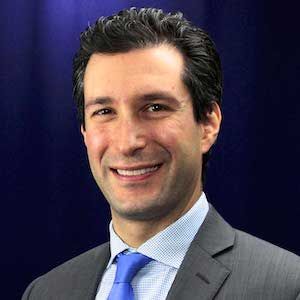Video
Carl Danzig, MD: Analysis of GATHER Trials Connects GA Growth with Vision Loss
Author(s):
In an interview at ARVO 2023, Danzig discusses the post-hoc analysis from the GATHER trials, showing that a reduced rate of vision loss in patients receiving avacincaptad pegol was correlated with reduced GA growth.
Carl Danzig, MD
Credit: Rand Eye Institute

A post-hoc analysis from the phase 3 GATHER1 and GATHER2 trials demonstrated the treatment effect of avacincaptad pegol 2 mg on geographic atrophy (GA) lesion growth rate over 12 months versus sham.
The analysis suggested a correlation between GA enlargement and worsening vision loss. A reduced rate of vision loss in patients receiving ACP was correlated with reduced GA growth, while greater vision loss was correlated with increased growth in GA.
The research was presented at the 2023 Association for Research in Vision and Ophthalmology (ARVO) annual meeting in New Orleans, Louisiana.
“For the first time ever in a GA trial, we’re able to see a correlation between vision loss and disease progression, GA enlargement,” Carl Danzig, MD, Director of Vitreo-Retinal Services, Rand Eye Institute told HCPLive at ARVO 2023. “In patients in this study, ones that had vision loss had greater GA enlargement. In the ACP 2 mg treatment arm, all patients had lower rate of GA growth regardless of whether not they lost vision.
The analysis of the GATHER1 and GATHER2 combined data showed a 56% risk reduction in the rate of persistent vision loss in GA patients receiving ACP 2 mg compared to sham over the first 12 months of treatment. The analyses defined persistent vision loss as the loss of ≥15 letters in best-corrected visual acuity (BCVA) from baseline measured at any two consecutive visits up to month 12. Sensitivity analyses suggested fewer patients receiving ACP had 10-, 15-, and 20-letter losses from baseline at 2 consecutive visits up to 12 months compared to sham.
Danzig discussed the upcoming treatment landscape for GA, with the recent US Food and Drug Administration (FDA) approval of pegcetacoplan for GA and the potential approval of avacincaptad pegol with an expected decision in August. He noted that this opens a conversation with patients that was not possible previously, when patients were told they had a disease and there was no cure, but they were hesitant to join a clinical trial.
“Now, I tell my patients, you can no longer sit on the sideline, you have a disease that is progressing and is potentially blinding,” Danzig said. “But now there’s renewed excitement amongst physicians and patients to treat this problem. And there’s a huge unmet need in our field and we’re starting to meet that need.
For more of Danzig’s insights, watch the video below from ARVO 2023.
Carl Danzig, MD reports having received funds for consulting or research grants from Genentech, IvericBio, Novartis, and Regeneron.





